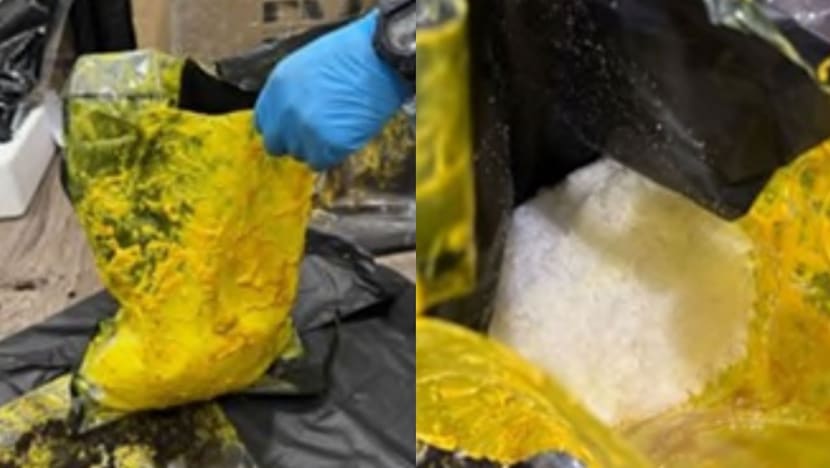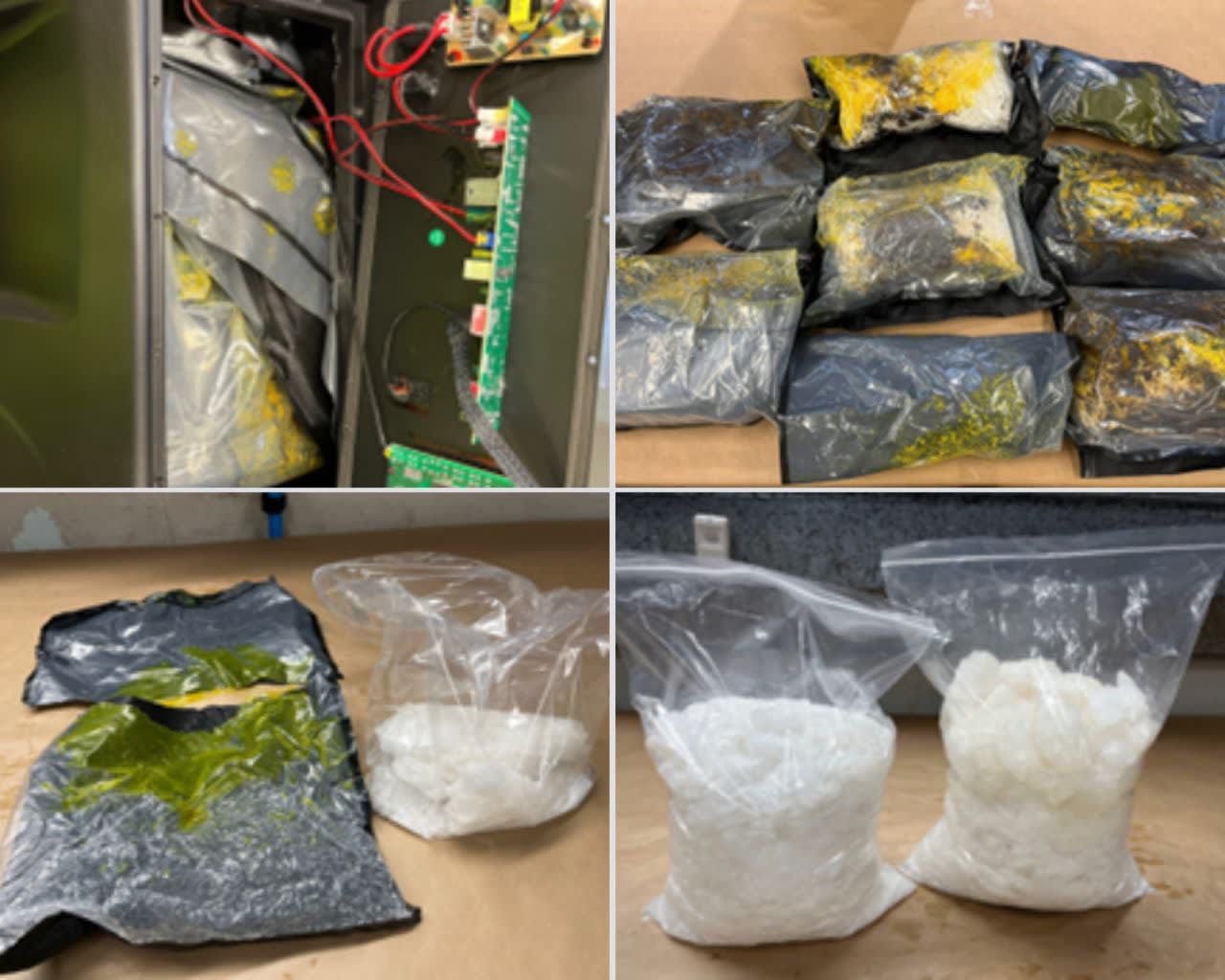Singapore's CNB helps disrupt transnational drug trafficking syndicate, seizes more than 10kg of meth
Singapore's Central Narcotics Bureau worked with authorities in the US, Brunei, New Zealand and Australia.

A parcel bound for New Zealand was found to contain over 10kg of Ice. (Photos: CNB)

This audio is generated by an AI tool.
SINGAPORE: Singapore's Central Narcotics Bureau (CNB) recently helped disrupt a transnational drug trafficking syndicate, working together with authorities in the US, Brunei, New Zealand and Australia.
The operation was enabled by close cooperation and the timely exchange of intelligence between the agencies, the authorities said in a joint news release on Monday (Sep 22).
The other agencies involved were the US' Drug Enforcement Administration (DEA), the Narcotics Control Bureau of Brunei Darussalam (NCB), New Zealand Customs Service, New Zealand Police, the Australian Federal Police (AFP), and the Australian Border Force (ABF).
In April 2025, CNB received information concerning freight parcels suspected of carrying controlled drugs.
The parcels, transiting through Singapore, were believed to have originated from the US and were bound for New Zealand.
The parcels were intercepted and seized by CNB and found to contain more than 10kg of Ice, or methamphetamine. Follow-up investigations and further monitoring by CNB identified other similar parcels bound for New Zealand and Australia.
Acting on intelligence provided by CNB, the New Zealand customs intercepted two drug-laden parcels in April and June, leading to a total seizure of 10kg of methamphetamine. This would have had a street value in New Zealand of about NZ$3 million (US$1.76 million).
Prior to this, Brunei's NCB made multiple seizures of methamphetamine, amounting to 49kg, between November 2024 and April 2025. The drugs were headed to several countries in the Middle East, Europe, East Asia and Australasia, the authorities said.
"It was suspected that these seizures belonged to the same syndicate as CNB and New Zealand Customs' seizures.
"The modus operandi was similar - concealment of the narcotics within electronic devices and routing them through courier and virtual office services to obscure the origin of the shipments."
Additional intelligence sharing with the AFP and ABF led to the Australian authorities intercepting and seizing multiple consignments in May this year. The consignments contained a total of about 40kg of methamphetamine destined for Australia.
The contraband was concealed inside furniture, mixed coffee and mustard shipments.
If the drugs had reached the Australian community, they would have had an estimated street value of A$37 million. This equates to about 400,000 individual street deals.

"The international drug syndicate is currently under investigation in the United States, and the DEA is pursuing all leads to identify the subjects involved, including the sources of their supply," said the authorities.
Based on investigations so far, the DEA believes that the methamphetamine originated from Mexico and was imported into the US for delivery into more lucrative markets in the Asia Pacific region.
The authorities said the "positive outcome" of the multilateral cooperation underscores the strength of strong collaboration among the agencies involved and their shared commitment to tackling the growing threat of organised and global drug trafficking.
"The agencies will continue to build on this partnership, deepening operational cooperation and intelligence exchange to stay ahead of evolving transnational drug networks and operations."
The DEA's Asia-Pacific division head John Scott said that the agency will "continue to leverage its international partnerships to combat the expansion of Mexican cartels such as Sinaloa and CJNG into the Asia Pacific who seek to capitalise on the lucrative drug market in Asia and Oceania".
“Drug syndicates that attempt to exploit Singapore’s infrastructure and connectivity as a major transhipment and logistics hub will not find us to be a safe haven nor safe route for their illegal activities, said CNB deputy director for operations Assistant Commissioner Aaron Tang.
The New Zealand police said that the transnational collaboration has embedded a partnership that "is both valued and effective in keeping communities safe", while Australian authorities said that the outcome "shows the critical importance of intelligence-led targeting" and the strength of its partnerships with domestic and international law enforcement and border security agencies.














